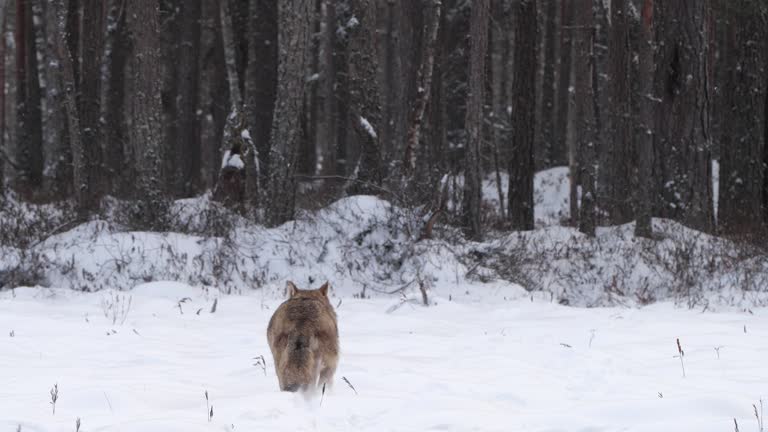Hunting alone can be one of the most exhilarating and rewarding outdoor experiences. It offers the freedom to move at your own pace, the chance to challenge your skills, and the ability to connect deeply with nature. However, venturing into the wild solo also comes with unique risks and challenges. Whether you’re tracking big game in the forest or hunting waterfowl in remote marshes, preparation is key to a successful and safe hunt. Here are 10 essential tips for solo hunting that will help you stay safe, prepared, and focused.
1. Plan Your Route and Scout the Area
The first step to a successful solo hunt is to thoroughly plan your route and familiarize yourself with the hunting area. Study topographic maps, satellite imagery, and local hunting regulations. If possible, scout the area ahead of time so you can identify key landmarks, natural obstacles, and potential hazards. Local hunters or park rangers can provide valuable insights into the area, including where game is most likely to be found and which parts of the terrain are more difficult to navigate.
2. Pack Only What You Need
When hunting alone, it’s important to keep your pack as light and efficient as possible. While it might be tempting to bring every possible piece of gear, remember that you’ll be carrying everything on your own. Pack essential items like your weapon, ammunition, knife, binoculars, and a first-aid kit. Don’t forget survival gear such as a firestarter, flashlight, extra batteries, a compass, and a water purification system. A multi-tool and a small tarp or emergency shelter can also come in handy. Always ensure that your pack is well-organized and easily accessible so you can quickly find what you need when you’re deep in the field.
3. Inform Someone of Your Plans
Solo hunting is rewarding, but it also comes with inherent risks. Always tell someone where you’re going and when you expect to return. This ensures that, if something goes wrong, someone will know where to look for you. Leave detailed information about your exact location, the route you plan to take, and your planned return time. If possible, check in with your contact at regular intervals, especially if you’re hunting in a remote area.
4. Carry a Communication Device
While solo hunters often seek to escape the noise and distractions of modern life, having a way to contact someone in case of an emergency is crucial. A satellite phone or a two-way radio is ideal for remote areas where cell service is unreliable. These devices allow you to communicate your exact location if you run into trouble, especially in wilderness areas that are far from help. Even if you plan to leave your phone off while hunting, carrying one for emergencies is a smart and potentially life-saving decision.
5. Train Your Mind for Solitude
Solo hunting can be mentally demanding. Being alone in the wilderness, especially in the quiet moments between hunts, can stir up feelings of isolation or self-doubt. It’s important to mentally prepare for these challenges. Before your trip, spend some time in solitude, whether it’s camping in a remote area or going on a long hike by yourself. This will help you become more comfortable with the silence and self-reliance required during a solo hunt. The more accustomed you are to solitude, the better you’ll handle the mental strain that comes with hunting alone.
6. Know How to Field Dress and Process Game
If your hunt is successful, knowing how to field dress and process your game is essential, particularly when you’re hunting alone. Field dressing your prey properly will not only prevent the meat from spoiling but also make it easier to transport. Practice your field dressing techniques beforehand so that you’re efficient and quick when it’s time to gut and clean the animal. Additionally, know how to butcher and store the meat safely, especially if you’ll be a long way from refrigeration. A small cooler or meat bag will help keep the meat fresh for transport.
7. Stay Aware of Your Surroundings
Solo hunters must remain constantly alert. It’s easy to become immersed in the hunt and lose track of your surroundings, but doing so can be dangerous. Always be aware of wildlife, potential hazards in the terrain, and weather conditions. If you’re hunting in bear or predator territory, make noise periodically to avoid surprising an animal. Carry bear spray or other deterrents if necessary. If you’re hunting in unfamiliar terrain, make mental notes of landmarks and natural features to help you navigate and retrace your steps if needed.
8. Avoid Pushing Your Physical Limits
One of the most important aspects of solo hunting is knowing your own limits. Hunting in rugged terrain or tracking large game can be physically demanding, and it’s easy to overexert yourself when you’re alone. Be mindful of your body’s signals—fatigue, dehydration, or soreness can all affect your judgment and decision-making. Don’t push yourself too far, especially when you’re in remote areas. If you start feeling worn out, take a break, hydrate, and assess the situation. It’s better to call it a day and return to camp than risk injury or exhaustion in an unfamiliar wilderness.
9. Be Prepared to Turn Back
No matter how much planning you do, sometimes the best decision is to turn back. Solo hunting can be unpredictable, and there may come a time when you realize the situation isn’t safe or favorable. Whether it’s poor weather, worsening conditions, or simply not feeling right about the area, trust your instincts. Recognizing when to head back is a critical skill for solo hunters. Your safety should always come first, and there’s no shame in cutting your hunt short if the circumstances don’t feel right.
10. Reflect on Your Experience
Every solo hunt is a learning experience. After your trip, take the time to reflect on the journey—what worked well, what could be improved, and what lessons you learned. Keeping a hunting journal can be an invaluable tool for tracking your progress over time. Write down the details of your hunts, including the terrain, game spotted, and successful techniques used. Reviewing this information can help you refine your skills for future hunts and make each solo trip more successful than the last.
Conclusion: Respect the Wild, Enjoy the Adventure
Solo hunting offers the ultimate opportunity to challenge yourself, connect with nature, and hone your skills. However, it also requires a high level of preparation and respect for the wilderness. By following these essential tips—planning ahead, staying aware, and keeping safety in mind—you’ll not only improve your chances of a successful hunt, but you’ll also ensure that you can enjoy the experience without unnecessary risk.
In the end, solo hunting isn’t just about bringing home a trophy—it’s about pushing yourself, learning from the wild, and becoming a more self-reliant and capable outdoorsman. Embrace the adventure, and always prioritize your safety.


